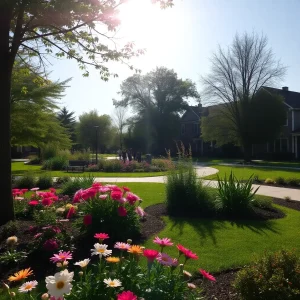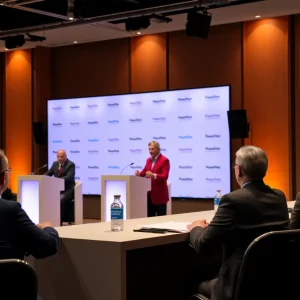Birmingham: A Growing Hub for Charter Schools
In the heart of Birmingham, Alabama, parents and educators are celebrating the success of i3 Academy, a charter school that has become a beacon of hope for families seeking quality education without exorbitant fees. For Selena Rodgers Dickerson, a dedicated mother and advocate, i3 Academy represents everything she envisioned for her daughter’s education journey. “I wanted to be in a situation where my daughter could be exposed to not just a great education, but a great group of people from different backgrounds,” Dickerson shared passionately.
As a member of the school’s board of directors, Dickerson has seen firsthand how the school prioritizes diversity and inclusivity. She firmly believes that a child’s potential should not be limited by their zip code. “Kids are smart regardless of where they come from,” she stated, emphasizing the importance of equal educational opportunities for all children.
A Bright Future for i3 Academy
This Tuesday evening, Dickerson and fellow parents gathered to show their support for i3 Academy during an important meeting to renew the school’s charter contract for another five years. The school, which opened its doors in the 2020-21 academic year with just 400 kindergarten through fifth-grade students, has grown rapidly. Now serving about 850 students from kindergarten to ninth grade, i3 Academy proudly reflects the vibrant diversity of its community, with 85% of its students identifying as Black and around 80% considered economically disadvantaged.
Head of School Martin Nalls expressed his commitment to maintaining a thriving educational environment. “Our focus initially was to open a high-performing K-5 elementary school,” he said, highlighting the school’s progressive growth by adding an extra grade level and around 100 students each year.
The Bigger Picture: Charter Schools in Alabama
I3 Academy is just one part of a broader trend happening across Alabama. The state is witnessing a growing interest in charter schools, with approximately 7,500 to 8,500 students expected to be enrolled in 17 public charter schools this year, up from 6,700 last year. While this might seem like a small fraction—less than 2% of Alabama’s 720,000 public school students—it’s a notable increase in options for families.
Despite this growth, funding challenges remain a hot topic of discussion. Emily Schultz, Executive Director of Alabama Families for Great Schools, shed light on the funding disparities between traditional public schools and charter schools during a recent appearance on Alabama Public Television’s Spotlight on Education. “Charters don’t have access to local property tax proceeds like traditional public schools do,” she explained. “This means they often struggle to secure the funding needed to build and maintain school facilities.”
Challenges and Solutions on the Horizon
The funding hurdles are a significant concern, prompting advocates like Schultz to push for a new school funding formula. The proposed model would focus on the unique needs of each student, rather than applying a one-size-fits-all approach. Schultz is optimistic that this *weighted student model* will gain traction in the upcoming legislative session, starting in February. “It would allow for better allocation of resources based on what each child actually needs,” she said.
As i3 Academy prepares to enter its second five-year term, their journey reflects the excitement and challenges of the emerging charter school landscape in Alabama. The charter school commission recently voted unanimously to renew i3 Academy’s charter, much to the delight of supporters present at the meeting. The room erupted in applause, a testament to the hope and determination of the i3 Academy community.
With more charter schools set to open in the coming years, the conversation around educational equity and funding is more critical than ever. Whether through innovative funding solutions or unwavering community support, the future looks bright for Birmingham’s charter schools and the students they serve.
























